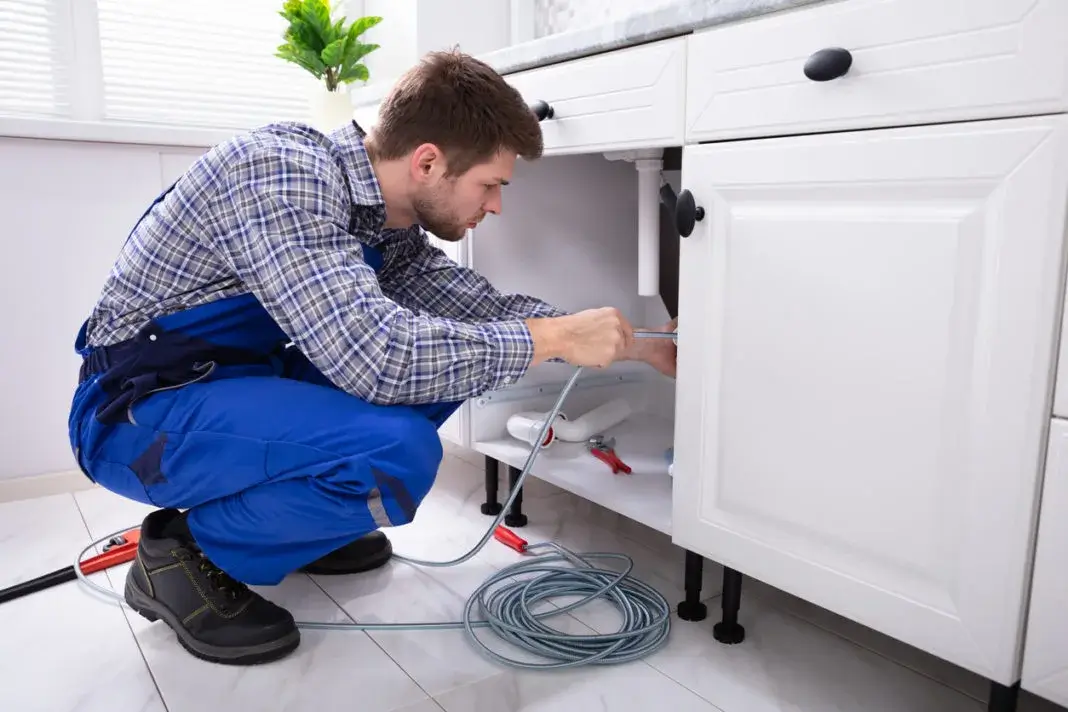Why Water Pressure in Pipes Is Too High
 Water pressure is an essential aspect of any plumbing system, as it ensures that water flows efficiently through pipes, faucets, and appliances. However, excessively high water pressure can lead to major plumbing problems, damage appliances, and increase water waste. Understanding the reasons behind it, can help homeowners take the necessary steps to avoid costly repairs and maintain a safe plumbing system.
Water pressure is an essential aspect of any plumbing system, as it ensures that water flows efficiently through pipes, faucets, and appliances. However, excessively high water pressure can lead to major plumbing problems, damage appliances, and increase water waste. Understanding the reasons behind it, can help homeowners take the necessary steps to avoid costly repairs and maintain a safe plumbing system.
Municipal Water Supply Pressure
One of the most common causes is the municipal water supply. Water companies often pump water at high pressure to ensure adequate supply to all areas, especially in multi-story buildings or properties at higher elevations. If the main supply pressure is too high for a particular home, it can cause strain on plumbing fixtures and pipes.
Faulty or missing pressure regulator
A pressure regulator is a valve that helps control the flow of water in a home’s plumbing system. If this device is faulty, improperly adjusted, or missing, it can increase to dangerous levels. Over time, this can lead to leaks, burst pipes, and wear and tear on appliances such as washing machines and dishwashers.
Thermal Expansion in the Water Heater
When water is heated in a closed system, it expands, which can cause increased pressure in the pipes. This phenomenon, known as thermal expansion, occurs when there is no expansion tank or pressure relief valve to accommodate the increased volume of hot water. If left unchecked, thermal expansion can lead to leaks and damage to the water heater.
Clogged or Blocked Pipes
While it may seem counterintuitive, clogged or partially blocked pipes can also lead to high water pressure in some areas of the plumbing system. When water can’t flow freely, pressure can build up behind the blockage, causing stress on pipes and fixtures.
High Pressure Pumps in Buildings
In large buildings or multi-story homes, high pressure pumps are sometimes used to ensure that water reaches the upper floors efficiently. If these pumps are not calibrated properly or malfunction, they can cause excessively high pressure in certain parts of the plumbing system.
How to Fix High Water Pressure
The first step is to test it with a water pressure gauge. Ideal residential one should be between 40 and 60 psi (pounds per square inch). If the pressure is consistently above this range, consider installing or replacing a pressure regulator. Additionally, inspecting the plumbing system for clogged pipes, faulty valves, or problems with thermal expansion can help prevent long-term damage. Consulting a professional plumber to perform an inspection and any necessary adjustments can ensure your plumbing stays in top condition.
Conclusion
High water pressure can be a hidden threat to your home’s plumbing system, leading to costly repairs and inefficiencies. By identifying common causes and taking preventative measures, homeowners can maintain a balanced water flow and protect their plumbing infrastructure. Regular monitoring and timely repairs can go a long way toward ensuring a safe and efficient water supply system.
Call Emergency Plumber in Cambridge. After your call, we send immediately the right plumber to you. Besides that, we are 24 hours available.
